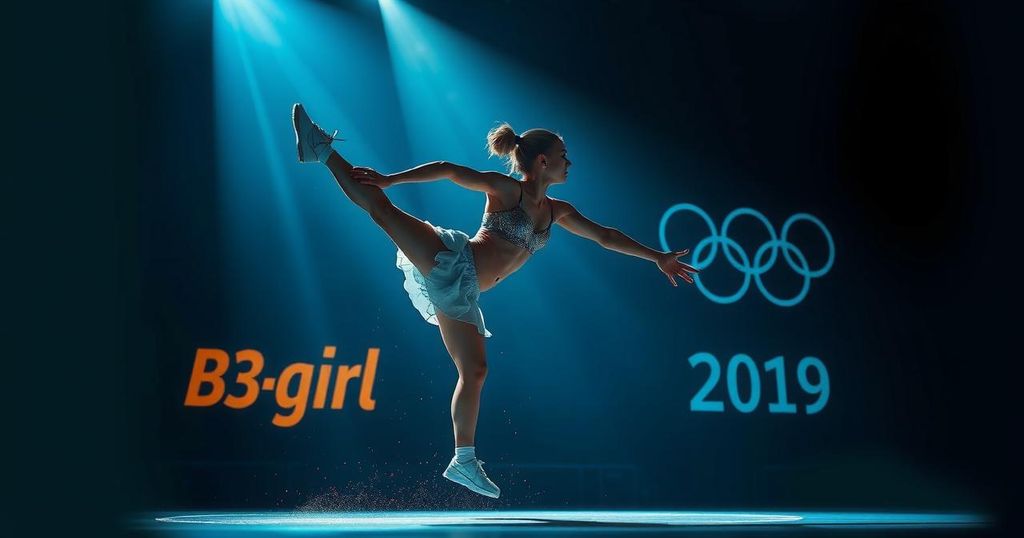B-Girl Raygun: From Olympic Disappointment to World Champion
Summary
Dr. Rachael Gunn, recognized as B-Girl Raygun, was named the number one B-girl globally, despite scoring zeros in the Olympic events. The World DanceSport Federation clarified that rankings result from performance metrics independent of Olympic results. As competitors focus on Olympic glory, the ranking landscape has shifted, highlighting the complexities of preparing and maintaining status in breakdancing competitions.
Dr. Rachael Gunn, better known as B-Girl Raygun, has recently been declared the top-ranked B-girl in the world, despite having received zeros in her Olympic performance. The World DanceSport Federation (WDSF) clarified that the rankings are determined based on the athletes’ best four performances over the preceding twelve months, excluding Olympic competitions. As a result, many competitors preparing for the Paris Olympics participated in fewer qualifying events, which affected their ranking contributions. In its statement, the WDSF addressed the outrage caused by Raygun’s ranking, explaining the unique circumstances leading to her ascendance. Two athletes—Raygun and B-Girl Riko—accumulated an equal score of 1,000 points; however, a clause in the WDSF regulations awarded Raygun the higher rank after placing first in the Oceania Continental Championships. As many B-girls focused on Olympic glory, the WDSF confirmed that rankings are subject to change with the expiration of old points, with the next major competition scheduled in Shanghai in October 2024. With her points soon to expire, Raygun will be challenged to maintain her top position on the world stage. The ranking controversy illustrates the complexities involved in competitive B-boying and B-girling, particularly as the sport gains global exposure through the Olympics.
The recent emergence of breakdancing, or breaking, as a competitive sport has brought attention to its ranking systems and the performance records of athletes. Despite the Olympic platform, the World DanceSport Federation emphasizes that Olympic events are not factored into the competitive rankings. This particular situation surrounding Dr. Rachael Gunn’s ranking raises questions regarding the influence of preparation for Olympic competitions on a dancer’s global standing. As B-boying continues to evolve, it is essential to understand the operational framework of dance event rankings, especially as the sport approaches further international challenges.
The case of B-Girl Raygun demonstrates the intricate nature of competitive rankings in the realm of breakdancing, shedding light on the systemic evaluation methods employed by the World DanceSport Federation. Despite her controversial Olympic experience, her performance at recognized events has secured her a top ranking. However, with her points set to expire shortly, Raygun faces the imperative to enhance her competitive edge in the upcoming events to maintain her standing in this dynamic sport.
Original Source: www.rollingstone.com








Post Comment